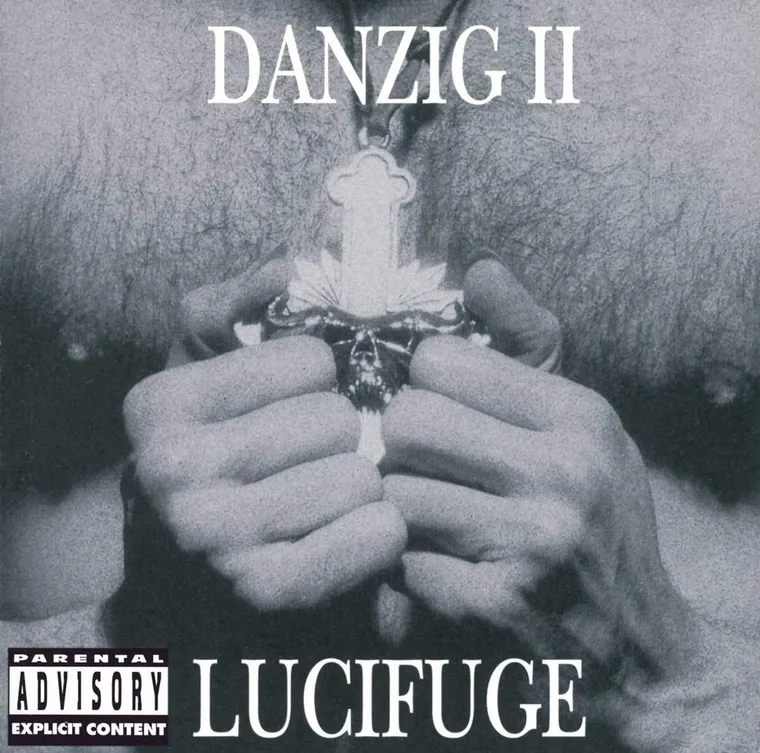Released on June 26, 1990, Lucifuge is the second studio album by Danzig—and it remains one of the most vital and unique records to ever straddle the lines between heavy metal, blues, and dark gospel. Where their self-titled debut delivered raw, doom-laden rock with punk roots, Lucifuge refines that vision, injecting a deep Southern blues flavor, more dynamic songwriting, and a mood that’s equal parts gothic sermon and haunted roadhouse. It’s the sound of the devil pulling up a stool at a dive bar jukebox.
Crafted under the production of Rick Rubin, the album showcases a band growing more confident in its voice—expanding beyond the heavy, hard-hitting formulas of their early Misfits and Samhain days and exploring a more cinematic and soulful terrain. Danzig himself, both the man and the band, fully embraces the outlaw mystique here, delivering an album that feels like a dark pilgrimage through America’s forgotten spiritual backroads.
A Long Way Back from Hell: The Unholy Road Begins
The opening track, “Long Way Back from Hell,” wastes no time signaling the band's evolution. It kicks in with a thumping, chugging riff and a sinister swagger that feels both tight and unhinged. Glenn Danzig’s vocals command the space—he doesn’t just sing; he preaches, growls, and moans his way through tales of redemption twisted by sin. The song’s dynamic shifts and infectious chorus make it a powerful opener that grabs you by the throat and doesn’t let go.
Next up, “Snakes of Christ” doubles down on the critique of religious hypocrisy. It’s a pounding, mid-tempo rocker with an almost ritualistic cadence. The riffs here aren’t flashy—but they hit like hammers. Guitarist John Christ delivers gritty, blues-soaked licks that feel like they’ve been left to dry in the desert sun. This song, like much of the album, fuses commentary and atmosphere in a way that’s both visceral and thought-provoking.
Twisting the Knife with the Devil’s Blues
“Her Black Wings” is arguably one of the most iconic tracks in the Danzig catalog. With a slow-burning groove and lyrics steeped in lust, power, and myth, it plays like a dark psalm to a femme fatale from the underworld. The chorus is seductive and eerie, and the layering of the guitars with Glenn’s low, crooning vocal performance makes it feel like something from a cursed jukebox.
Then comes “Devil’s Plaything,” which leans into the gothic elements even harder. The instrumentation becomes more restrained here, allowing the mood to dominate. There’s a hypnotic quality to it—like being caught in a dream that’s part nightmare, part prayer.
“Killer Wolf” and “I’m the One” are where Lucifuge makes its boldest stylistic turns. “Killer Wolf” blends outlaw country storytelling with a hard-driving blues-metal riff, while “I’m the One” strips everything down to just a slide guitar and vocals. It’s the rawest track on the album and also the most blues-authentic—Danzig sounds possessed, channeling something that’s equal parts Howlin’ Wolf and hellfire. The fact that a track this stripped-back can feel this intense is a testament to the album’s unrelenting atmosphere.
A Descent into Darkness and Reflection
Midway through, the album shifts its focus more inward. “Blood and Tears” stands as perhaps the most emotionally resonant song Danzig has ever written. It's a ballad—but not in any traditional sense. It uses minimal instrumentation, letting the sorrow-laden melody and haunting vocals do the heavy lifting. It’s a song about pain and about longing, and it lingers long after the final note fades.
“Girl” is perhaps the album’s most underrated track—a sleazy, almost throwback number that feels like a dark spin on rockabilly. It’s catchy, it’s dangerous, and it adds a bit of playful menace to the album’s more brooding moments.
“Pain in the World,” the closing track, returns us to the smoke-filled sermon vibe of the opener—but this time, slower, wearier, and heavier. It ends the album not with closure, but with an open wound. The blues influences are laid bare here: the repetition, the emotional weight, and the sense of endless wandering. It’s a finale that doesn’t resolve so much as it continues echoing into the abyss.
Production and Performance: Classic Yet Unholy
Rick Rubin’s production on Lucifuge is nothing short of masterful. He manages to elevate the band’s raw power without sterilizing it. There’s space in the mix—air between the notes—that allows every element to breathe. Whether it’s the tightness of Chuck Biscuits’ drumming, the distorted hum of Eerie Von’s bass, or the metallic whine of John Christ’s guitar leads, every piece of the puzzle is in perfect balance.
Glenn Danzig’s vocals are arguably at their peak here. He embraces the full range of his baritone—crooning like a doomed lounge singer on “Blood and Tears,” snarling with defiance on “Snakes of Christ,” and delivering pure fire-and-brimstone preacher energy on “Long Way Back from Hell.” He doesn’t just sing—he commands, he conjures.
Final Verdict: 9.5/10
Lucifuge isn’t just Danzig’s best album—it’s one of the most distinctive rock records of the 1990s. It’s dark, bluesy, poetic, and soaked in American gothic mystique. At a time when metal was chasing faster tempos and heavier breakdowns, Danzig slowed down and looked inward—finding something far more sinister and soulful in the process.
It’s an album of contradictions: accessible yet dangerous, minimalist yet richly layered, and melodic yet menacing. It takes risks, it defies categorization, and it has aged like red wine left in a church basement.
For longtime fans, Lucifuge is sacred. For newcomers, it’s the perfect entry point into Danzig’s world—a world of fallen angels, seductive demons, and midnight confessionals.
Standout Tracks
- Long Way Back from Hell
- Her Black Wings
- I’m the One
- Blood and Tears
- Killer Wolf
- Snakes of Christ
Lucifuge is more than an album—it’s a haunted gospel. A black-lit cathedral of rock ‘n’ roll where the devil doesn’t just get his due—he gets a whole choir.

